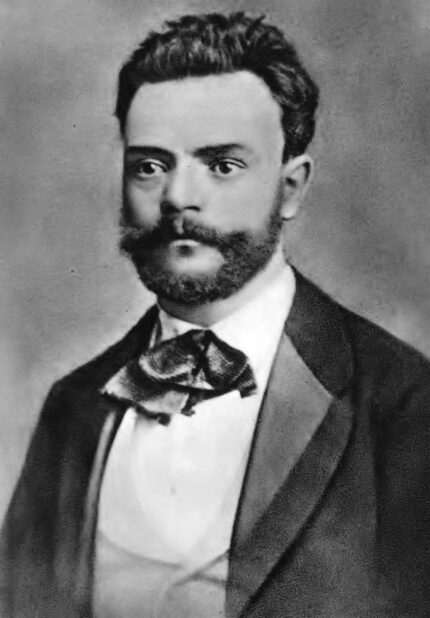Dvořák rarities, youthful and mature, spotlight CSO’s festival

As the Chicago Symphony Orchestra’s Dvořák Festival enters its final week, the programs are starting to dig into some of the neglected repertoire promised. In addition to the offbeat chamber/orchestral hybrid Saturday night, the evening offered two rarities, one from the early years of Dvořák’s career and one of his very late works.
The program led off with the Emerson String Quartet, in the first of its three festival appearances, performing the most familiar work on the program, Dvořák’s String Quintet, Op. 97. A product of the Czech composer’s American sojourn, the quintet inhabits much of the same soundscape as the contemporary String Quartet, with an array of fetching melody and piquant rhythms that somehow sound indigenously American, Indian, and Bohemian at the same time.
Violist Paul Neubauer joined the quartet for this performance, fitting into the ensemble like a perfectly tailored glove. The Emersons are sometimes accused of overwhelming the music with a heavy-metal intensity, but such was not the case in this rendering of the String Quintet. The performance had an airy lightness and Old World grace about it, with the playing ideally in scale. Dvořák often gives his own instrument, the viola, prominence and the Emerson’s Lawrence Dutton shone in his solos, while the overall performance had the yearning, solace and folk elements in a finely judged balance, some passing wayward violin intonation apart. But what was with all the hearty audience applause between movements?
Dvořák’s Symphony No. 3 is a youthful work, hailing from a time when the composer was still under the influence of Wagner’s music. It’s structurally a bit ramshackle, cast in three movements and with Dvořák’s longest slow movement (nearly 18 minutes) followed by his shortest finale (just seven minutes).
The Wagner debt is unmistakable in the opening bars, and while the first movement has Dvořák’s characteristic exuberance it’s not yet tempered by the refinement and compositional skill to convincingly develop his ideas. The slow movement goes on too long but has breadth and somber tragic grandeur, with another passing Tristan quote. While the bumptious finale isn’t one of Dvořák’s greatest inspirations, it rounds off the work in lively fashion.
Even not-mature Dvořák has considerable charm and, as conductor Sir Mark Elder stated, it provides a portrait of the young composer that makes us appreciate even more the master he was to become. Elder and the orchestra provided committed and gleaming advocacy to this belated CSO premiere.
More interest focused on the work that preceded the symphony, The Midday Witch. One of a set of late tone poems based on grisly Czech folk fables, it tells of a mother who threatens her misbehaving child that the evil title witch will get him, which tragically soon comes all too true. With his Shakespearean voice and story-telling skill, Elder showed he could have been a worthy actor with his atmospheric introduction relating the details of the story.
In contrast to the early symphony, this late work shows Dvořák in complete command, the music unfolding the tale’s scenario with seamless fluidity, his mastery of the orchestra manifest in the iridescence and subtlety of the scoring. Elder and the CSO, once again outshone themselves with extraordinarily rich and subtly textured playing, making the charm and drama of this strange yet oddly endearing piece come across in communicative fashion.
Much of the Orchestra Hall audience stayed around after the billed program for a late-night bonus encore of Dvořák’s Wind Serenade. Elder turned the baton over to Peter Bay of the Austin Symphony, and, if the ensuing performance could have been more clearly balanced, the thirteen CSO members morphed convincingly into a Bohemian village band, putting across the vitality and melodic charm of the work delightfully. Elder joined the hundred audience members seated onstage for this generous encore, and led the applause.
The Midday Witch and Symphony No. 3 will be repeated 7:30 p.m. Tuesday with the Emerson Quartet performing the String Quartet in E flat major, Op. 51. 312-294-3000; cso.org.
Posted in Performances


